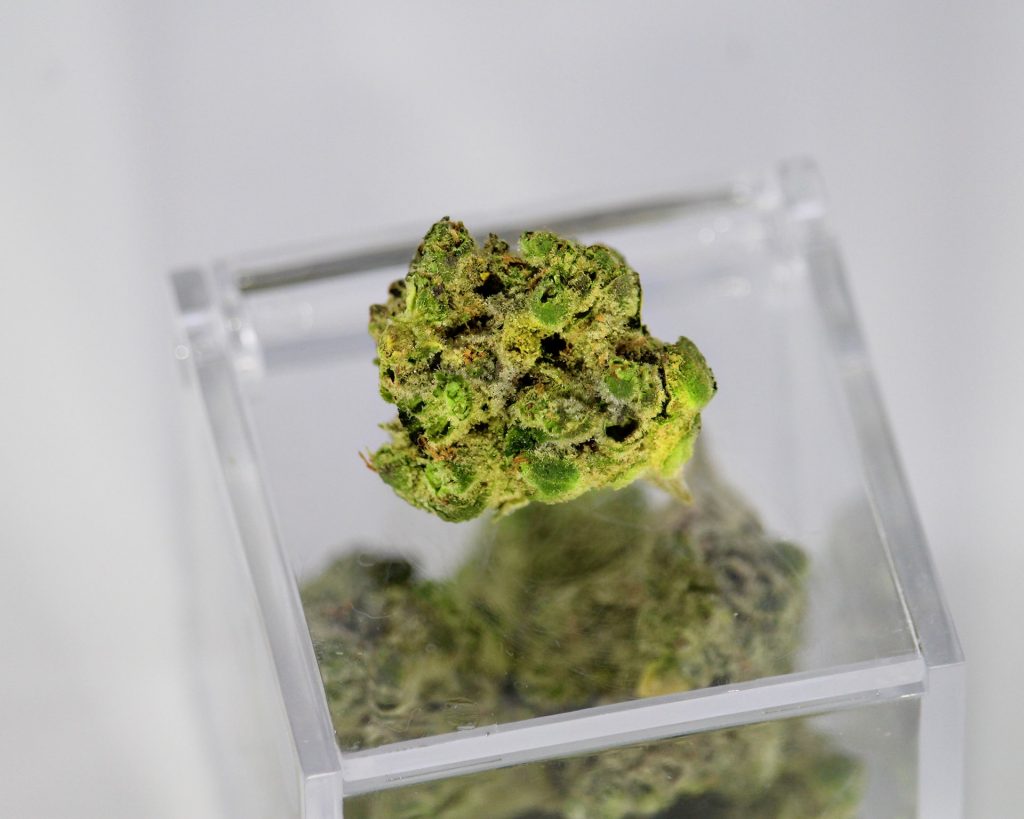by Dan Ketchum
If you’ve made your way to Mistifi, there’s a good chance that your affinity for craft cannabis has you constantly seeking, or at least keenly interested in, ways to enhance your high — and if early indicators are anything to go by, THCP has the potential to do just that.
Right up front, it’s important to note that we should take THCP’s newly-discovered status at face value: as research continues to roll in, we don’t know nearly everything there is to know about THCP yet, but what we do know so far is more than enough to get us buzzing, in more ways than one.
How THCP Hit the Scene
A late 2019 article published in the Scientific Reports journal first brought news of THCP to the mainstream — that’s how new the cannabinoid is. Not only was the discovery recent, but it was also purely accidental. It was only access to mass-spectrometry and liquid chromatography tools — shortly, methods that allow scientists to observe molecular weight on a micro-detailed level — on a sample of natural hemp that unintentionally revealed the previously undiscovered compound.
According to the Italian researchers who made the discovery, the presence of THCP offers a potential explanation for the pharmacological properties of some cannabis varieties that had previously been difficult to explain by the presence of THC alone.
What Is THCP?
So that’s how we got here, but what is THCP, exactly? You know tetrahydrocannabinol as good old THC, or more specifically delta-9-THC, the primary psychoactive component of cannabis (read: the component that gets you high). When people say “THC,” they’re almost always referring to delta-9.
Trans-delta-9-tetrahydrocannabiphorol, or THCP, is essentially a delta-9 analog that naturally occurs in a variety of different types of cannabis. It has largely the same structural makeup as delta-9, but with slight differences in its side-chain structure, where the side chain is a chemical group attached to the main chain (sort of the backbone) of a molecule. As subtly different as its structure is, though, its effects can be drastically different than THC in terms of intensity.
THCO vs. THCP
A quick note on another buzzword you may have heard in the same breath as THCP: that’s THCO, or THC acetate ester. While both are variants of Delta-9, THCO is a strictly synthetic delta-9 analog that is synthesized from the real thing, or from tetrahydrocannabinolic acid (THCA, in case you needed another acronym in your life). In contrast, THCP occurs naturally in cannabis plants, just like delta-9 does. Compared to both delta-9 and THCP, synthesized THCO often has much more potent psychoactive effects and may even cause hallucinations alongside a powerful sense of euphoria.
The Potential Effects of THCP
Here’s where things get most interesting for craft cannasseurs. Remember that subtle side-chain difference? Here’s where that comes into play, and in a potentially paradigm-shifting way.
Both delta-9 and THCP feature alkyl side chains made up of strings of carbon atoms (think of them like tails), and these side chains are essential in each compound’s interaction with our body’s endocannabinoid system (or ECS), the built-in series of bodily receptors that respond to cannabis. Oracle CBD explains that, at minimum, an alkyl side chain needs three carbon atoms for the cannabinoid to bind with the CB1 receptors of the ECS and express an effect. Because THC has five carbon atoms, you feel its effect, as a psychoactive high.
The kicker is, THCP has seven carbon atoms in its side chain. To put that into context, a 2016 study in the journal Perspectives in Medicinal Chemistry used a synthetic seven-carbon chain THC and found that it was twice as effective at bonding with CB1 receptors compared to delta-9-THC. According to the research team from the original Scientific Reports study, THCP is potentially thirty times more effective at binding with CB1 receptors than THC. And what that means for you is a significantly more effective, more powerful, and meaningfully more intense high.
How You Can Try It
We’re still getting a definitive grasp on which strains of flower prominently feature THCP, or even on identifying those that may be more THCP forward. As Elevate Holistics notes, while a typical cannabis plant contains about 30 percent THC, that same plant is liable to only contain roughly 0.1 percent THCP. While you may be able to find a few non-flower products featuring THCP at your local dispensary, research on which strains are naturally rich in THCP is still rolling in at the moment (and you know for sure that we’ll keep you updated on those developments).
Most users report that while the effects of a THCP high are the same or similar to that of a THC high, those effects are acutely more pronounced. According to High Times, it’s estimated that a THCP high feels about ten times more intense compared to a familiar delta-9 high. As such, dosages should be scaled in expectation of THCP’s exponentially more stimulating effects, and this new cannabinoid is best left to seasoned cannasseurs and enthusiasts. While that cannasseur may very well be you, always remember to experiment slowly and safely as you explore yet another new frontier on your cannabis journey.
Dan Ketchum splits his time between Dallas and LA as a freelance lifestyle, fashion, health, and food writer with more than a decade of experience. In cannabis, been fortunate enough to collaborate with Cannabis & Tech Today, FOCL, Vitagenne, Reign Together, Tough Mama, and more.

